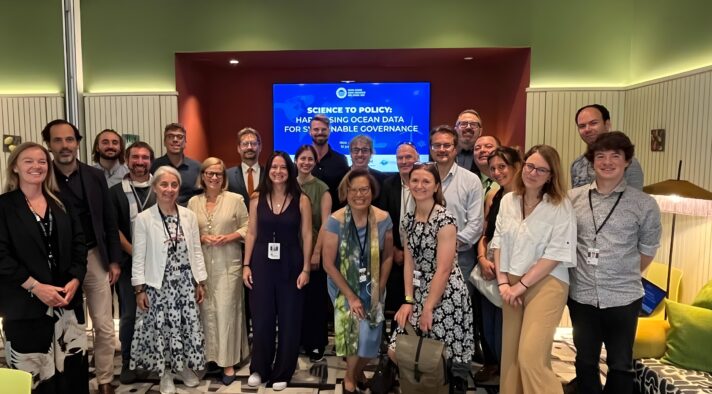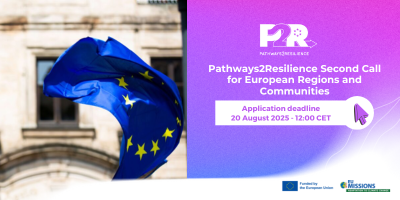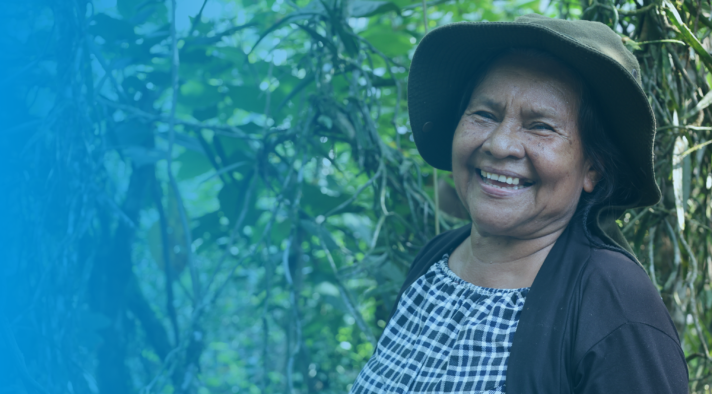We are excited to share the latest updates on a key EU initiative: MAIA, a project in which Regions4 is a partner and is supporting efforts.
MAIA In a Nutshell
MAIA is a Horizon Europe ‘Coordination and Support Action’ project designed to multiply the impact of climate change research and innovation.
Through tech tools, research services, and outreach activities, MAIA makes it easier for EU-funded climate research projects to share knowledge, connect and work together, and turn their results into commercially viable products and services.
The goal of the project is to make the current disperse knowledge more interoperable, accessible, usable, and rendering the outcomes more economically sustainable.
MAIA has established a set of expected results to aim towards the interconnection of the current and existing EU-funded climate change research projects. The foreseen outputs of MAIA are linked to the following concepts: coordination, creation and activation.
- Coordination of technological structures to connect knowledge and promote climate action.
- Creation of successful coordination of the Climate Resilience Projects Cluster.
- Activation of a pan-European community of climate-driven problem solvers and enablers.
MAIA Achievements 2022-2024 and next steps for 2025
MAIA Climate Action Community
MAIA partners have identified and characterised a large number of research groups, networks, private companies, NGOs, and other stakeholders involved in climate change research and action activities across Europe and created The MAIA Climate Action Community.
It offers an easy-to-navigate, searchable visualisation of 300+ key European climate actors so you can easily:
- Explore a diverse range of European climate change stakeholders–from academia to public and private sectors, civil society, research projects, networks and policymakers.
- Find research collaborators and innovation partners, access expert insights, and expand your network to maximise your impact.
- Search by criteria like sector, location, field of expertise, knowledge cluster, etc.
The aim is to promote cross-fertilisation of knowledge and connect sectors as diverse as academia, public administration, civil society, and business and practitioners. On top of informing the MAIA Ambassadors programme recruiting phase, the MAIA Climate Action Community underpins all MAIA activities including Policy Roundtables and Workshops.
MAIA Ambassadors Programme
The MAIA Ambassadors Programme is taking shape to engage European stakeholders in outreach, knowledge exchange, and community building. This initiative aims to ensure MAIA’s active involvement and effective communication of research results.
If this sounds like something you would like to engage with, download the presentation for Ambassadors or contact us to find out more about the Ambassadors program.
Connecting knowledge
MAIA aims to improve knowledge sharing, break down information silos, and avoid redundant or duplicated climate research through the Climate Connectivity Hub. This interactive visualisation makes it easy to quickly find climate change information (projects, articles, organisations, etc) to inform policy-relevant insights, collaboration, dialogue and learning.
We’re also refining and creating an open-access and shareable version of the Climate Change Adaptation Taxonomy that is currently embedded in and driving the Hub. This will make it easier to find research products by using a common set of keywords activities and organisations. Developing a common language for climate resilience topics enhances search capabilities, improves communication and collaboration, and promotes a shared and nuanced understanding of terms and concepts.
Currently in development, the Voctractor is an AI-powered tool that will speed up the search for information by narrowing down results and creating structured summaries of information. This allows knowledge curators and those developing vocabularies and taxonomies to determine the most suitable terms to describe their documents, as well as which subvocabularies to use when grouping terms.
Serving the business community
MAIA Discovery Services are being developed to connect demand with supply by allowing users to explore climate research projects, technology and organisations. It will also support regional ecosystems by providing knowledge and access to climate services, connecting regional and trans-regional actors along value chains, and sparking co-creation of climate innovations.
MAIA Discovery Services will become available in 2025.
Related to MAIA Discovery Services, we will develop MAIA regional branches to support regional development plans by identifying the needs, priorities and capacities of regional stakeholders and aligning their interests with relevant EU climate R&I project results.
Alongside these branches, we’ll develop Trade Missions (events) to bring climate innovations to regional stakeholders and communities. These activities will be driven by the needs of the regions targeted by a mission, connecting local knowledge and stakeholders with communities across Europe.
Information gathered will be consolidated and shared through a Training Platform. This will offer different formats and materials sourced from R&D projects, existing platforms, or MAIA services to enrich what the platform offers. For example, business planning and financing courses.
Policy outreach
So far MAIA has organised a wide variety of events like policy roundtables, policy-science dialogues and workshops at the international, national, and regional levels.
We also organised two civil-policy dialogues during a Special Session in Spain at CONAMA and at the Donostia Sustainability Forum on Citizens Assemblies in 2022 and 2023, respectively.
These activities support the development and sharing of climate best practices, implementing lessons learned and the limitations encountered in integrating climate research and data into climate policy development. Find more information about these events below:
Policy-Science Dialogues
Policy Roundtables
- 5th Policy Roundtable: Behavioural change and civil society knowledge – Coming in March 2025, Brussels TBC
- 6th Policy Roundtable – Coming in June 2025, TBC
Workshops
- 3rd Workshop – Coming in February 2025, TBC
- 4th Workshop under the auspices of the AUEB-DTU Hydrogen Conference – Coming on 30 April 2025, Athens TBC
- 5th Workshop – Coming along with the 6th Policy Roundtable in June 2025, TBC
In 2025, we will also develop policy implications and recommendations in the form of policy briefs. These will integrate insights from EU climate change research projects and be created in consultation with the EU Commission. The policy briefs will support the implementation of measures or policy reforms aimed at enhancing climate resilience.
Bridging research
The EU Climate Change Research Cluster is bringing climate projects together and provides a space to raise and discuss questions related to research, policy, and how to increase the impact of climate research. This facilitates exchange and collaboration beyond what current synergy efforts have been able to achieve.
To this end, the Cluster will organise Thematic Working Groups per research area. These ‘grassroots’ events will allow climate projects to work together to fulfil certain aspects of their self-defined work plans.
The first Thematic Working Groups took place in 2024, and others will follow. Activities will run at least until the end of the MAIA project in August 2025.
MAIA selected themes:
- Carbon Budget – C Farming
- Knowledge platforms
- Integrating Adaptation and Mitigation
- Behavioural change
- Regions
- Financing climate action
- International cooperation
- Communication
- Climate Change Impacts
- Knowledge Services
- Sustainable Food Systems
- Energy Transition
- Distributional consequences of climate policy
- Collective research gaps
Democratisation of knowledge
MAIA has created a range of content channels to reach different audiences: peer researchers, businesses, policymakers, academics, civil society, and young people. To this end, MAIA Resilience, Alter! and Jolt the Change regularly publish information on climate research tailored to their respective audiences.
MAIA webinars and Special Edition Publications are also designed to reach the scientific community by highlighting solutions for climate change adaptation and mitigation.
As part of the MAIA Multiply program, we are carrying out targeted actions, initiatives and campaigns to engage diverse stakeholders and maximise the impact and reach of EU-funded climate research projects. Among other things, we are sending out MAIA newsletters and press releases and publish technical articles and project updates on the MAIA website.
Additional communication actions will include interviews with MAIA partner projects, ambassadors and relevant figures through video or text, an itinerant exhibition at eight European venues to showcase project results, and educational tools such as games and card games designed to promote climate change awareness.
Opportunities for European regions in 2025 (up to August 2025)
- Access to MAIA tools and services
- Be part of the MAIA Ambassador’s Programme
- Participate in MAIA events: Workshops, policy-science dialogue, and policy roundtables.
To learn about MAIA and stay informed about the activities and opportunities to connect, visit the MAIA project website: https://maia-project.eu/ or email at info@maia-project.eu



